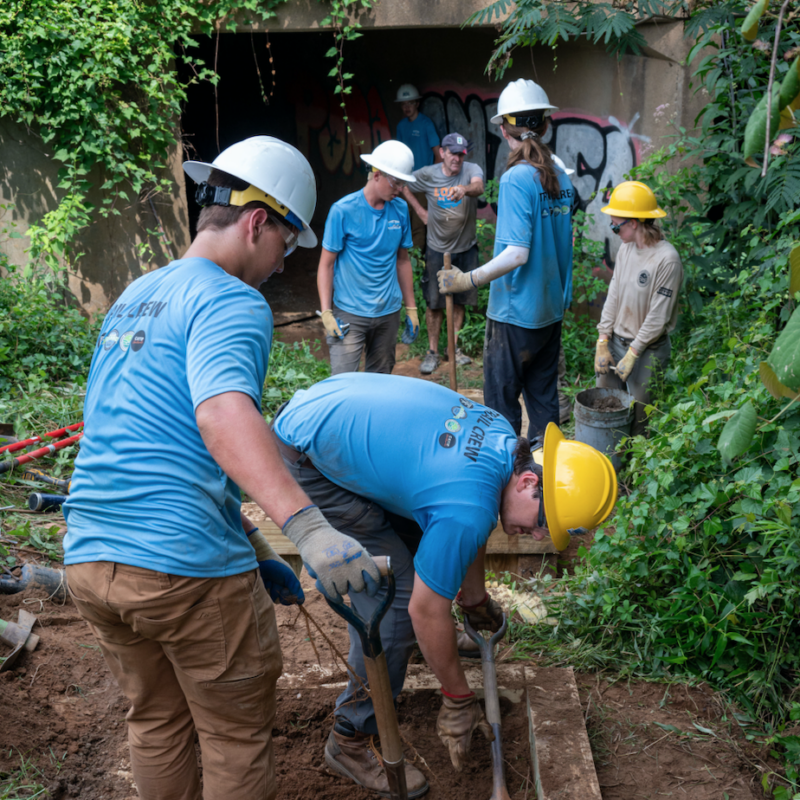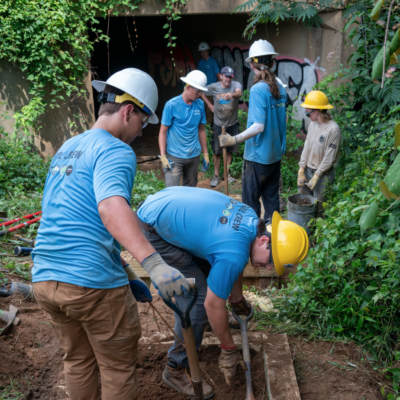Immigration and English fluency are a hot- button issue these days. But Albemarle County is in its 30th year of dealing with it by helping immigrants and non-native residents with their English language proficiency. In recent years, due to rising demand from residents, Albemarle County Adult Education has increased language and literary courses from its hub at Albemarle High School to other sites as well.
Southwood trailer park, off Fifth Street Extended, has been one such addition. Hosted at the Habitat store, the Southwood classes were started to meet the need of the growing Hispanic population that found it easier to spend evening hours in a class that was closer to home.
 In the evening, Albemarle High School becomes the scene for adult English learning. |
One class started last year and has become so popular that the county needed to add another class this year, says Maury Brown, spokesperson for county schools. Two classes into the semester, 33 students have already registered.
English instruction started in 1978 when teachers from the adult program moved from one migrant camp to another to teach workers basic English-speaking skills. Rebecca Snider has been teaching English and civics since 1986. “Back then we had only one class and I was the only teacher,” she says. By 2000, “it exploded with people,” says Snider.
Last year, 475 students registered for English, GED, citizenship and workplace classes at the high school and the same number is expected to enroll this year.
The English and GED courses are federally grant funded with support from the county, the state and nominal tuition. This year, the county contributed $22,500. Federal and state monies came to $72,452. Tuition at the high school is $75, and $25 at Southwood. Workplace classes have been a real success, says Snider. Companies whose employees don’t speak English call upon the help of county’s Adult Ed teachers to come in and give classes. “I’ve taught in construction companies, country clubs, hotels, even a refrigeration plant once,” Brown says.
Although the success of new off-site English classes have been proven time and time again with federal testing at the beginning and at the end of each semester, Sharon Root, program coordinator for the county adult education, says the number participating could be higher, but people are leaving town. “Our construction industry is at a standstill, so people move on to where they can find jobs,” she says.
The majority of registered students are Hispanic, followed by Russian-Turk immigrants and Burmese. The numbers reflect the current wave of refugees, says Snider, Charlottesville being a site for the International Rescue Committee, which helps refugees to resettle in the U.S.
C-VILLE welcomes news tips from readers. Send them to news@c-ville.com.





